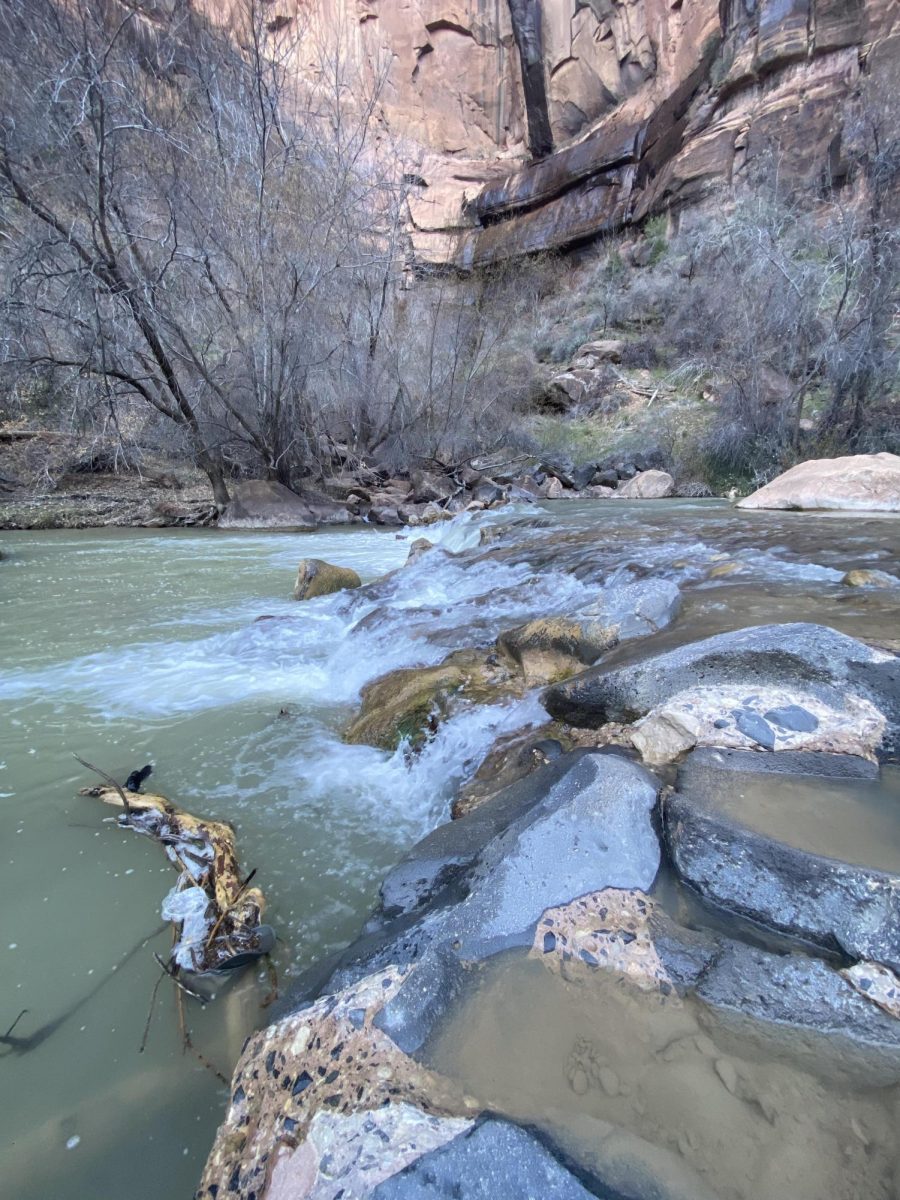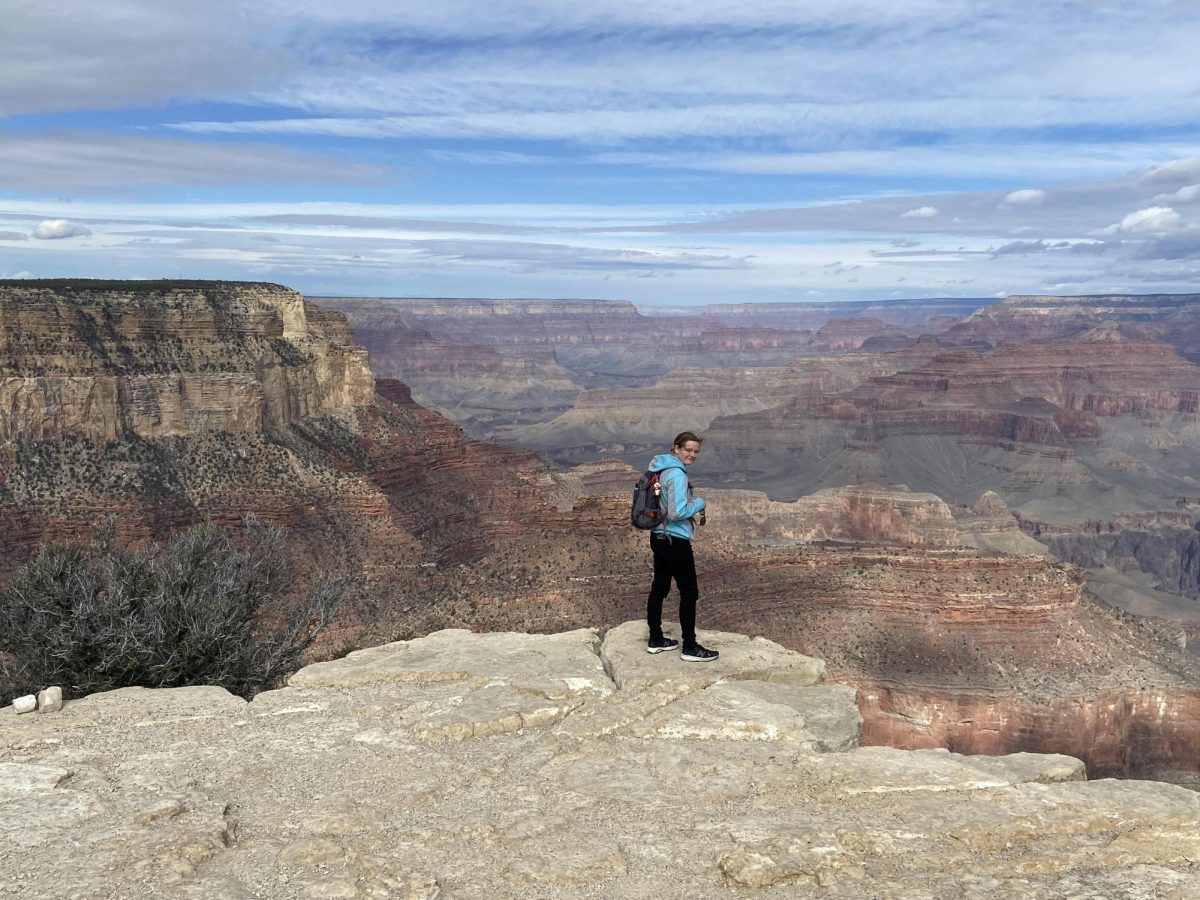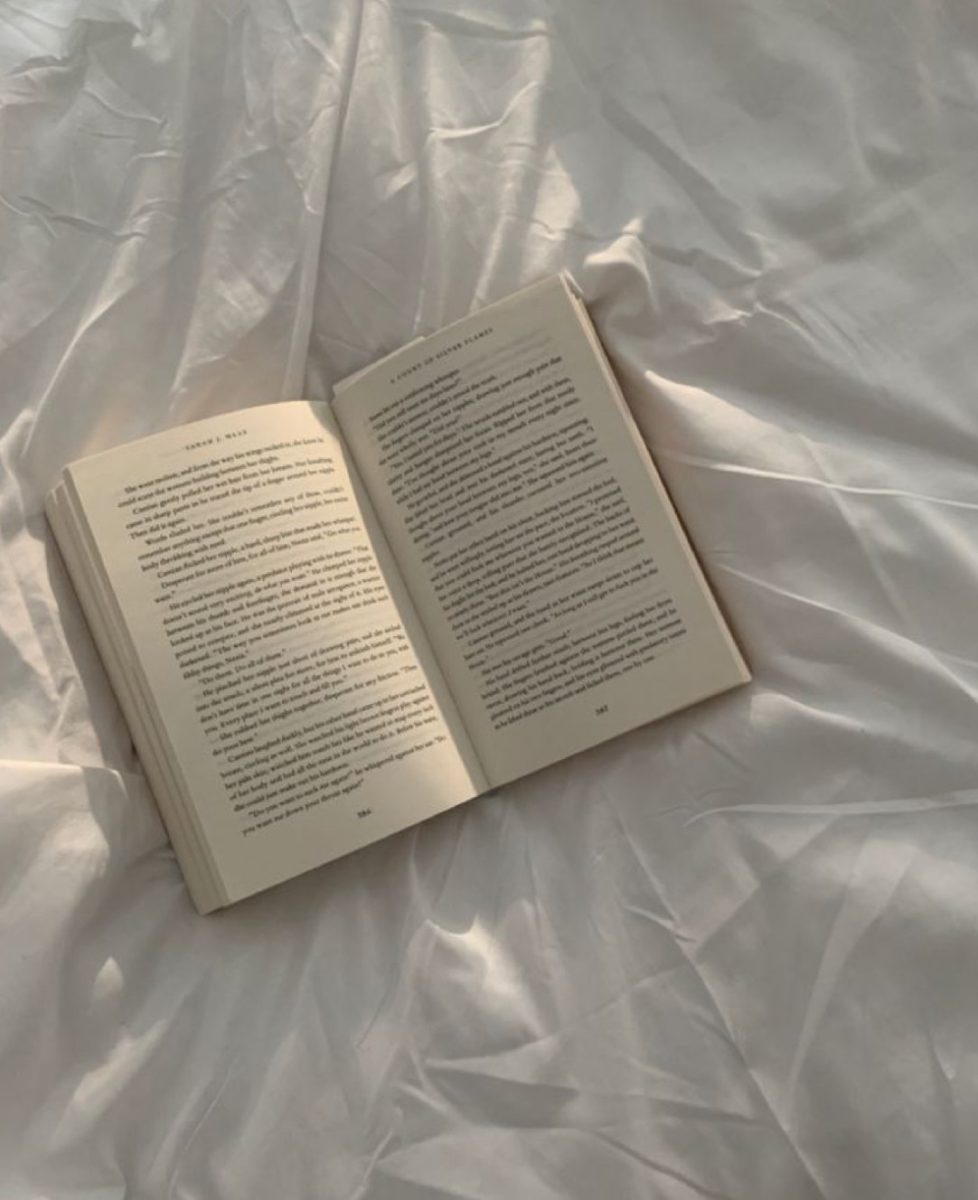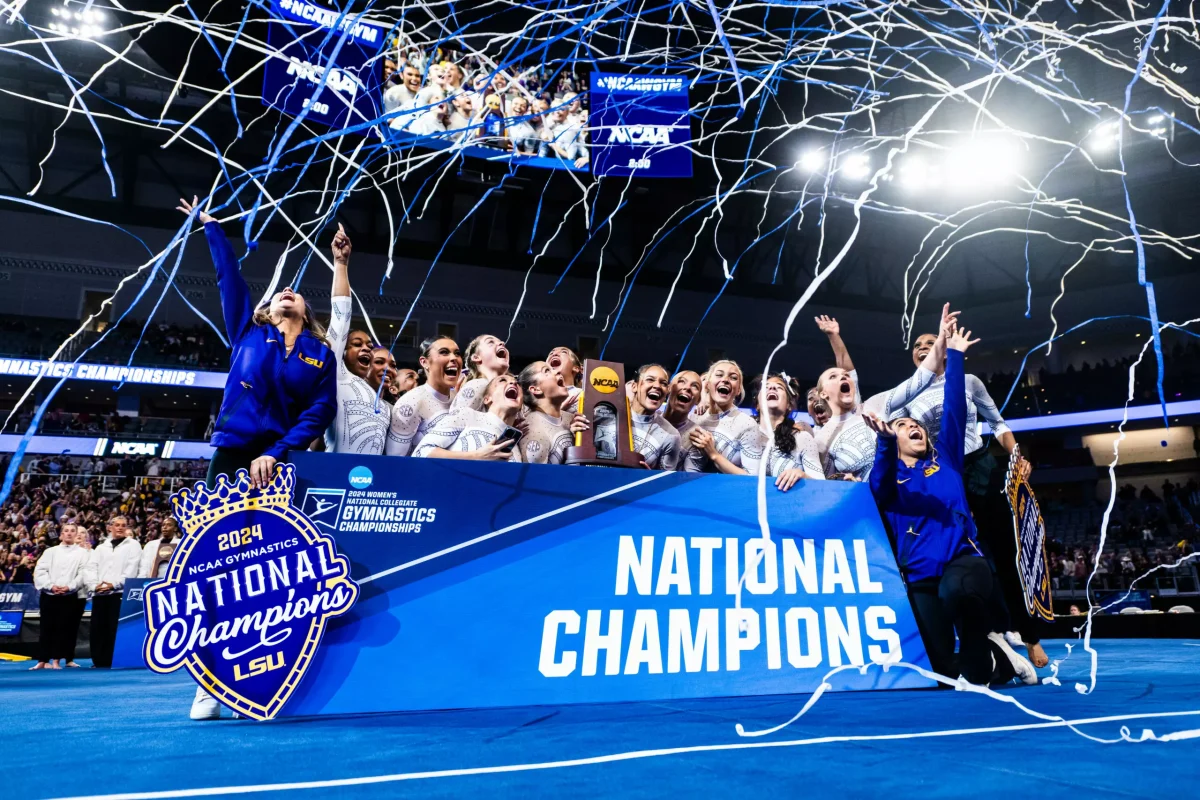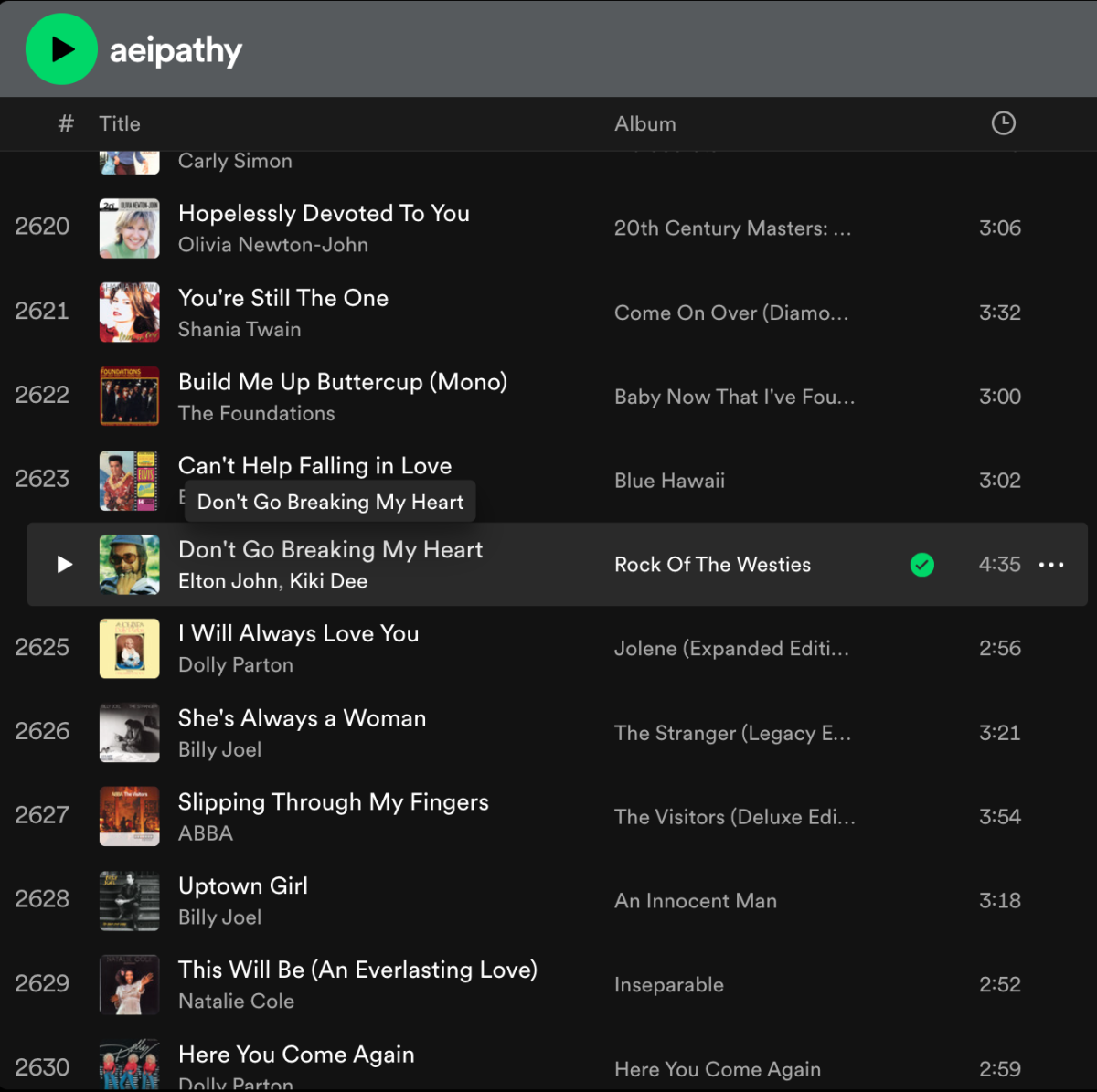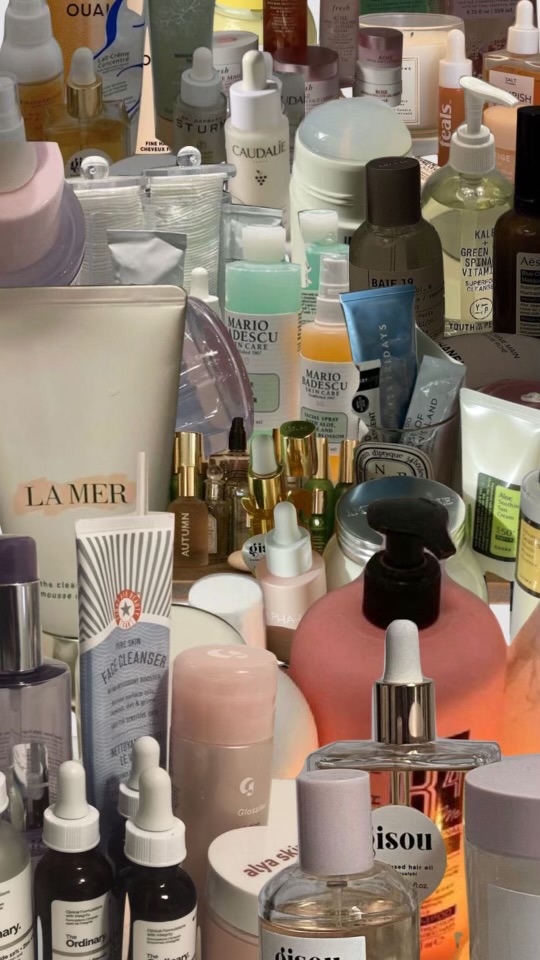Ally Monaghan hopes to change the habits of others through recycling
Cats aren’t the only things with nine lives.
Many different recyclable items are everywhere in the world. From the plastic water bottles strewn on someone’s bedroom floor to the piles of unwanted magazines collecting dust in a corner, these items can all live a life more than once.
“Only 34 percent of the waste in America is recycled,” senior Ally Monaghan said. “That’s a really low number, considering how much waste there is. There are 224 million tons I think per year, and only 87 million are recycled. It’s just sad.”
Ally was inspired to start a recycling program at FHC after conducting research for a paper. It was a spur of the moment decision, but Ally has found inspiration through the tragic facts surrounding over-consumption. After realizing how crucial it is to protect the Earth, Ally took it upon herself to create change. She realized there were many little changes to be made at FHC to protect the Earth, and recycling could be the start.
Ally aims to create a club-like after-school activity. The goal of the club is to meet once a week for around half an hour. The first task of the club will be to create bins for recyclable products to be disposed of. After this, she wants to work on collecting the recyclables to dispose at the proper location and discussing ways to further help the environment at FHC.
“I feel like recycling is the top thing we can do,” Ally said. “We have the greenhouse, which is super cool, but I also feel like recycling is a big, important thing. If students change their mindsets for a second and one kid does it, you’re already helping. If a bunch of kids do it too, it could definitely change a lot.”
Currently, the club is in the final steps of creation. Ally just has to create more participation and get the club approved by the administrators. After this, the club will be completed and official.
With the creation of a club comes setbacks and difficulties. There have been many environmental clubs and recycling programs at FHC, but they have been inconsistent and have often disappeared after a period of time. This creates a slight feeling of alarm since there has been a lack of student participation in similar clubs.
“I hope others in the school realize how important it is to help the Earth,” Ally said. “We’ve had recycling clubs and environmental clubs in the school before, and [sometimes] they’ve been shut down because nobody’s been participating. I’m just hoping that mine is going to be kind of different and change the way that students look at the program.”
Teacher and environmentalist Chad Scholten acknowledges there have been many difficulties in the past in regards to clubs aiming to improve the natural environment. However, Scholten knows that there is something that sets apart recent grade levels at the high school.
“I do appreciate this age group because they have passion,” Scholten said. “Those who are passionate about the environment want to do something about it, and that’s a good thing. It’s one thing to be passionate about ita�� but to have them want to do something and be active about it, that’s rewarding and reassuring for myself when I see that.”
Chad Scholten
— I do appreciate this age group because they have passion. Those who are passionate about the environment want to do something about it, and that's a good thing. It's one thing to be passionate about ita�� but to have them want to do something and be active about it, that's rewarding and reassuring for myself when I see that.
Ally aims to overcome hardship, in regards to lack of participation, by getting various students involved from all paths of life. She hopes that she can create more than just a program but a way for students to bond.
“I hope that people can become closer over an environmental issue,” Ally said. “I know that there aren’t a ton of people who are always freaked out about the environment, and I’m not one of those people either, but I hope that I can make a change.”
Another way to overcome the hardship of lack of cooperation from students is by getting teachers to encourage the program. Senior Zoe VanLeeuwen, a future participant in the project, hopes that teachers can lead by example.
“I know that it will start small, but I think once we get teachers on board, it will start growing bigger,” Zoe said. “I know Manders is starting an Environmental Club, so maybe we can partner with them and get them to help.”
Zoe is thrilled about the new opportunity to make an environmental change and has always displayed a concern and care for the environment. She is grateful that she now can act upon her feelings.
“I know our school used to have a recycling program in the Environmental Club, and it got taken away, so now, no one recycles,” Zoe said. “I want to bring that back because plastic waste is a huge concern.”
With the help of other individuals like Zoe, Ally hopes to create a large impact on the community of FHC. She wants to start with recycling and possibly build the club to something bigger. The overall goal of the club is not just to recycle but to do more than just that. Ally is considering, depending on the success of her first project, dabbling in compost and other ventures. Scholten suggests hosting days of awareness to show that conserving resources is possible and easy.
“Things I think we’ve talked about are these days of awareness where everybody does one thing,” Scholten said. “Wouldn’t it be cool, and it might rock the school a bit if everyone rode the bus? So it’s a public transportation day… just to show it can be donea��.Maybe [it’s] not feasible to walk to school every day or to ride your bike to school, but what if you had something like that?”
On top of different services, Ally wants to provide a change in the mindsets of students at FHC. Ally and Scholten aim for more than just changes at school. They both want to see a change in the students outside of the high school walls.
“What we would hope is something that is habit-forming,” Scholten said. “Whether you do it at home or you do it at school, I feel like students think, “Well someone is going to pick up after mea��… I think the biggest hurdle is the mindset of the student body realizing that [you] can throw it away, but where is it going?”
Recycling can help students on a more personal level than expected as well. Without recycling, problems like air pollution come along. With the air pollution, problems like sickness can come and infect others in urban areas. Ally believes recycling is a critical issue that needs to be fixed in communities everywhere.
“If we don’t start to make a change in Grand Rapids because it’s a big city, we all could get sick too,” Ally said. “I guess if you want to think about it at a personal level, you could get sick [from not recycling].”
Recycling remains of large importance in society today. It is important to protect the Earth, but more importantly, Ally wants to create a positive impact on her own life.
“I’m really hoping to change myself in this too,” Ally said. “I didn’t really think about it that much. I’ve probably thrown away a plastic water bottle, which I shouldn’t have done, but I probably have. I think that if I can change my mindset, I can encourage other people to do that too.”

Sarah is a senior entering her second year writing on staff for The Central Trend. Sarah thinks her enthusiasm for writing sprouted from her love for reading...













